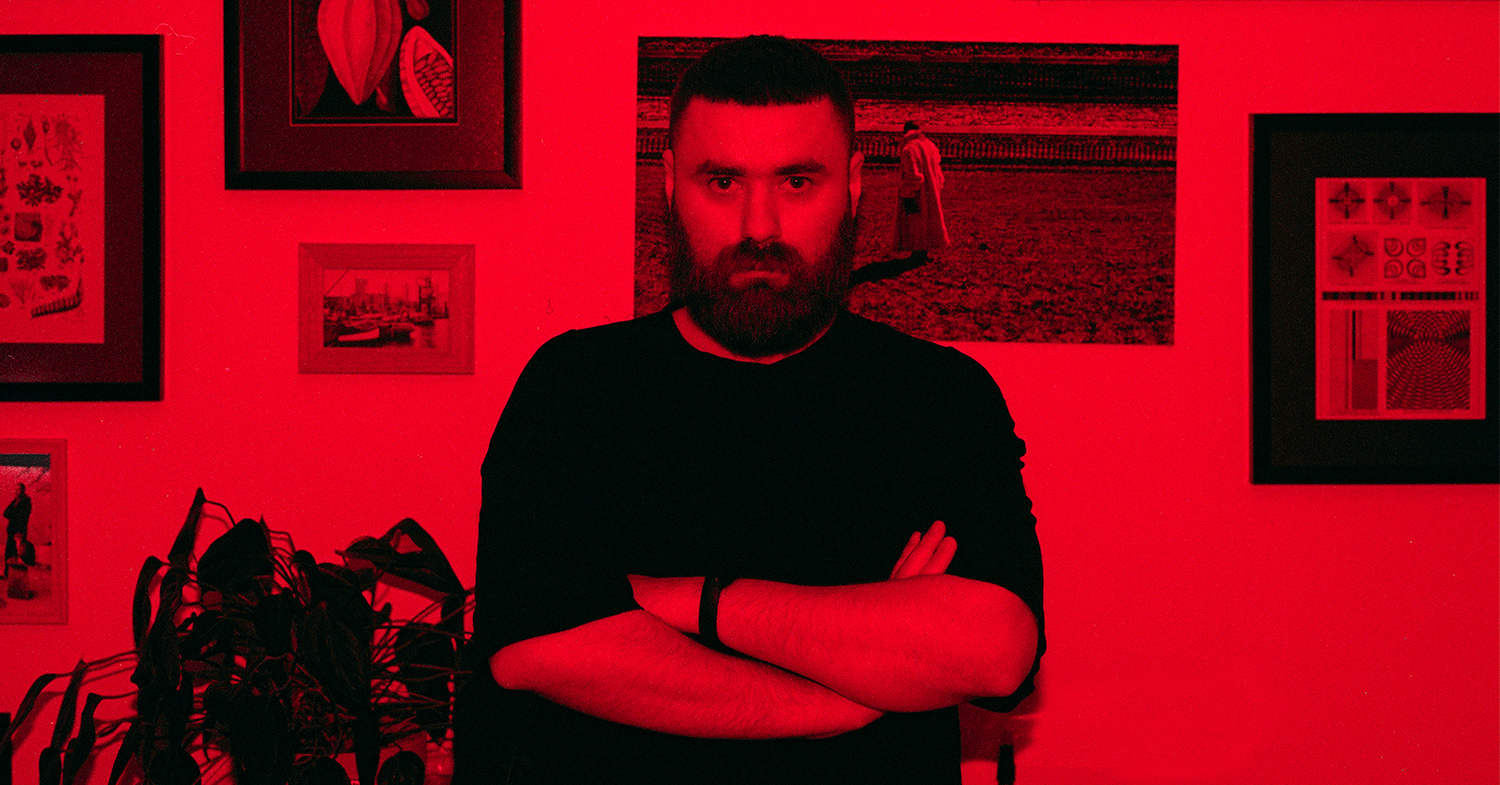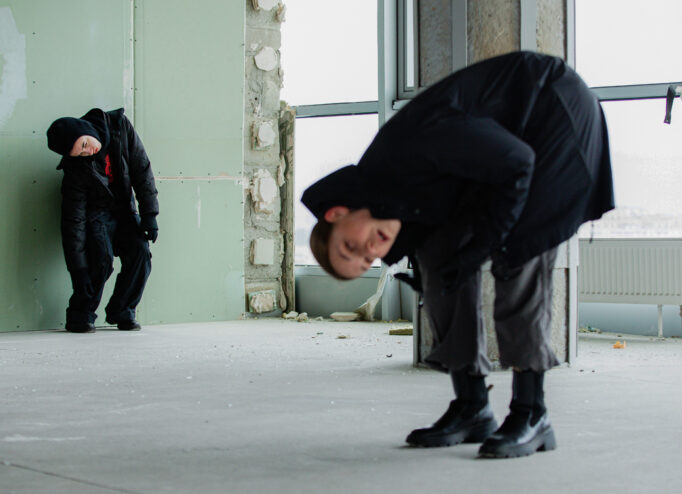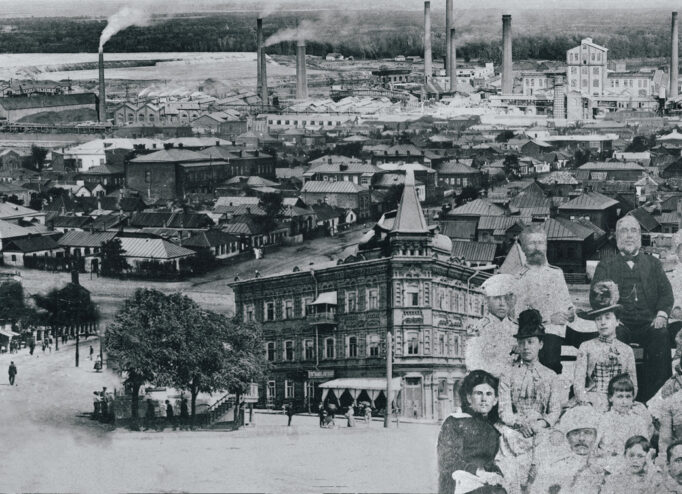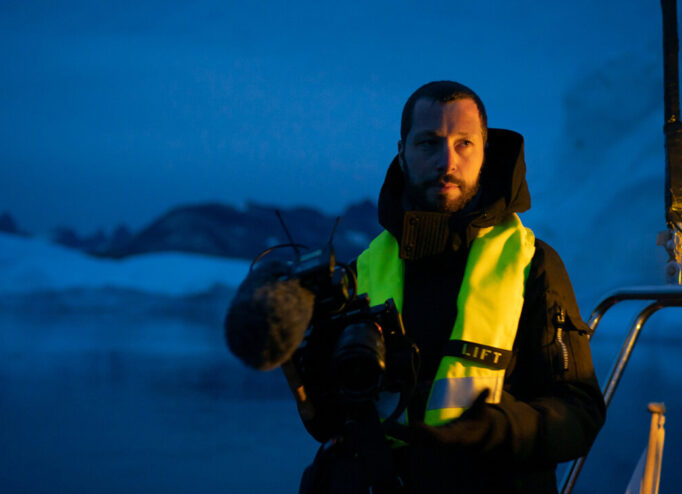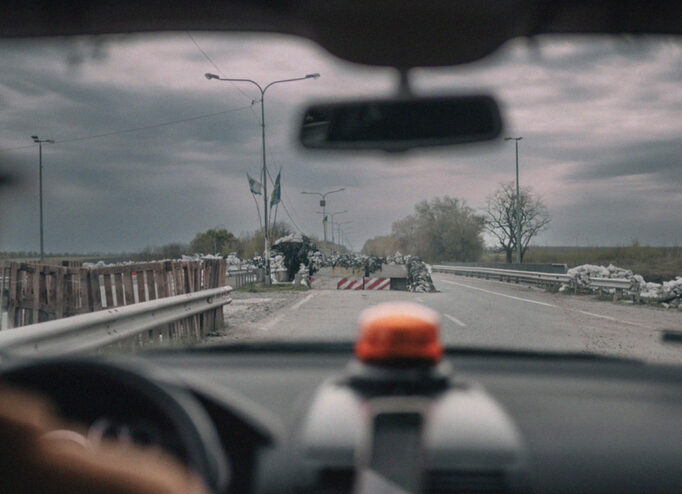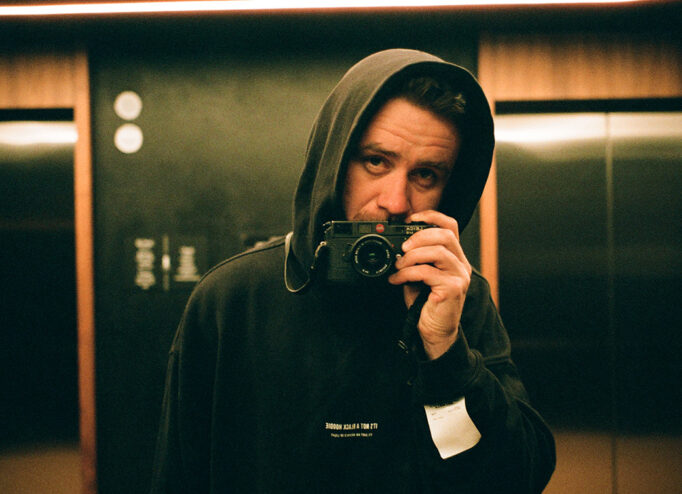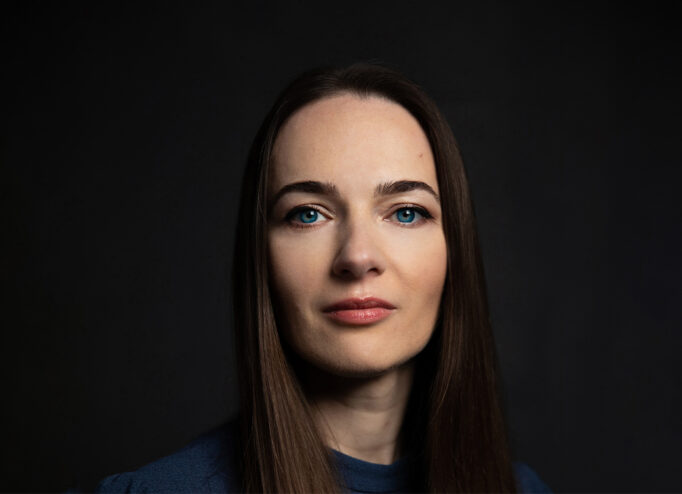Dmytro Avksentiev, aka Koloah and Voin Oruwu, is presented as one of the key artists on the Ukrainian electronic scene in every announcement. He is declared in the lineups of the main Ukrainian festivals, clubs and parties, where he performs practically every week and he can play three times during the weekend in Kyiv. Although he is not limited to parties: he creates audiovisual projects, writes music for films, commercials, collaborates with Ukrainian jazz, pop and hip-hop artists (namely with Dennis Adu, Lucy, OTOY, Jamala and others), and now he produces joint collections with Ukrainian brands.
The musician is celebrating his 10th anniversary on stage this year, he as Koloah presented the album Millennium Sun in November, which he calls «the music of the city of the future», and he played his first set overseas since the pandemic began in early December.
We met Avksentiev right after his return from Copenhagen to find out if he feels cramped on the Ukrainian scene, why he doesn’t want to leave Kyiv and if he’s afraid that people will get fed up with him. In addition, he tells why he thinks he lost Voin Oruwu, how he «fights» for the covers of his releases, and also explains what the Ukrainian electronic scene lacks and why he is still not a resident of any Ukrainian club
— How often have you performed abroad this year?
— Not much at all, I mostly played in Ukraine.Also I didn’t have any dance releases and mixes that an artist needs for great promo. I signed a contract with a Dutch booking agency Meanwhile in October. Performing in Copenhagen is my first booking through them. I think there will be more soon.
In general, I hope for the festival season: I want to do more live shows, because my music is more suitable for festivals than for clubs.
— Don’t you feel cramped in Ukraine?
— I’ve been actively playing since 2009, and not much has changed globally here: 30 new clubs haven’t opened, the same crowd goes to the clubs as 10 years ago, just some younger guys have been added to it. So, I can say that in some way I feel cramped despite the fact that Kyiv is pleasing and surprising.
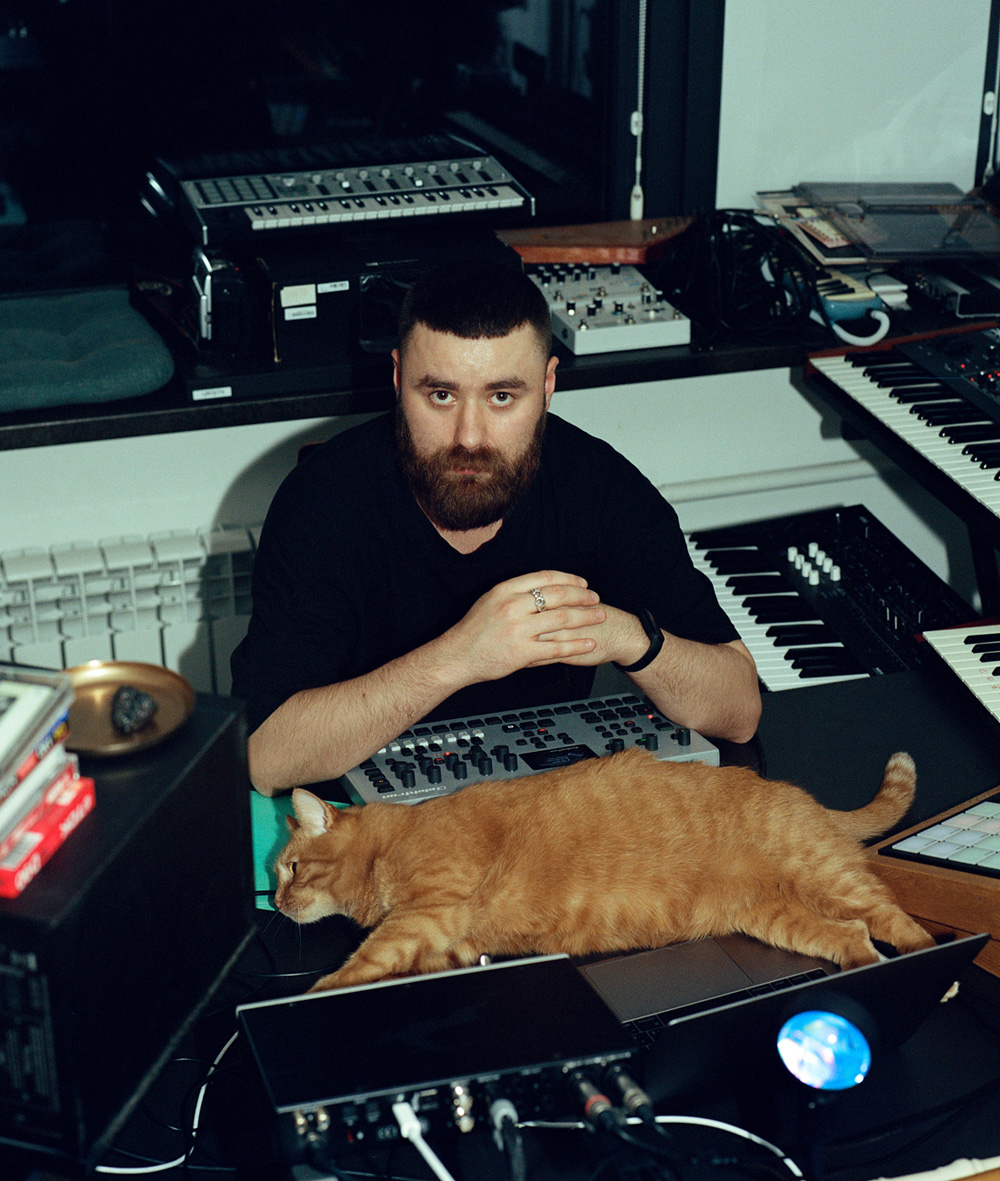
Dmytro Avksentiev and his cat Misha | Photo by Anton Orekhov, specially for DTF Magazine
— How does that affect you?
— It’s both a hindrance and a help. I want to do something new all the time. For example, I have a Voin Oruwu live on a techno stage at one Brave! Factory, I play as Koloah on the next one, and then I play on the ambient scene with an experimental program. I’m trying to constantly change and experiment in existing environments.
— Doesn’t it bother you that people will see your name in the next line-up and say: «It’s Koloah again!»?
— It stresses me out. But I have an example. After the last Black! Factory I was approached by a sound engineer who works in several clubs and big venues in Kyiv and he often hears me. He said: «Man, I’ve never heard two identical sets from you. How the fuck do you do that?!» So, I try to play different music every time even though I’m on a lot of posters. And every set I played on Kyrylivska Street this summer was unique.
I think it comes from my background, which started with hip-hop, synth-pop, bass, dubstep, then there was house-disco and techno, experimental music. I’ve been involved in music since the early 2000s in one way or another, and I understand labels, artists. It gives me a chance to juggle with styles, not to be obvious to the audience and cause them to react: «You never know what Koloah is going to play today».
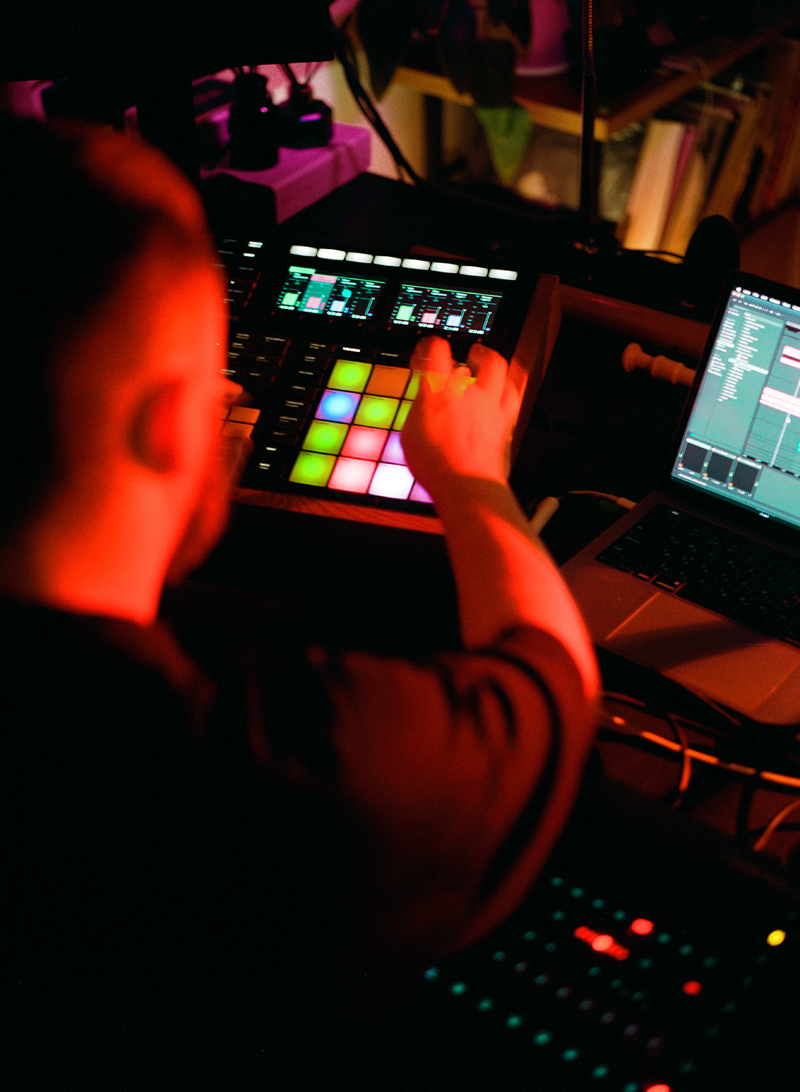
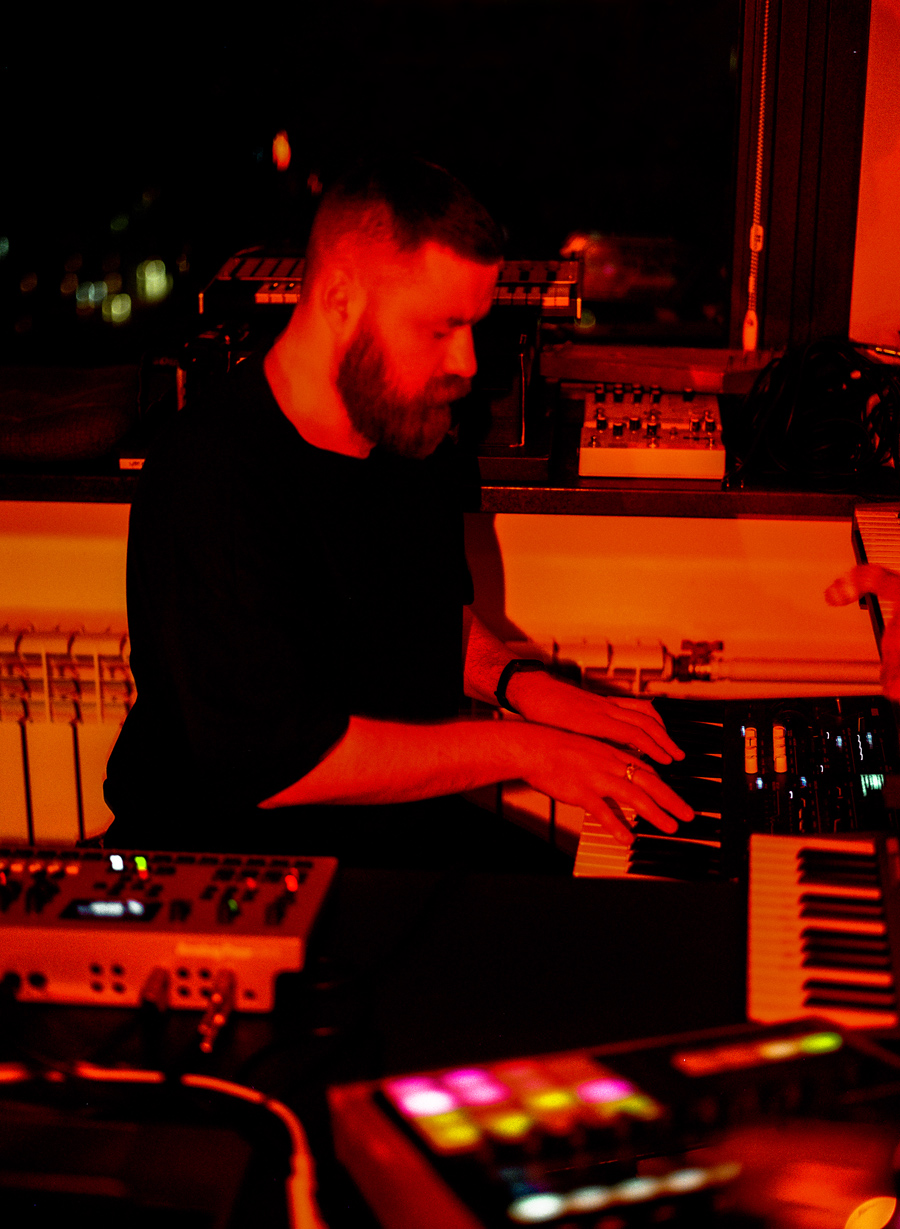
Dmytro Avksentiev | Photo by Anton Orekhov, specially for DTF Magazine
«I HAVE ALREADY LOST VOIN ORUWU»
— What has driven you for so many years? You make music, lead three different projects, write music for movies, commercials, other artists.
— I like variety, and that’s probably why I got into advertising. Every new project is a challenge. You don’t have two ads in a row that are the same, you do a new track every week, new music, you work with a new style. And I almost never say no. «Can you do funk?» — «Yes, I can». «Can you do a song with a guitar?» — «No problem». I like these challenges: they make me learn, and that’s important to me.
You can trace a certain mood if you analyze my musical projects, namely Koloah, Voin Oruwu, Tropical Echobird. It’s romantic despair, nostalgia, epic, futuristic sound. I still have a lot of ideas in this direction, and I will develop them until they are exhausted. And I’ll do a new project when they’re finished.
It’s been like this several times already. Koloah’s album was released in 2013-2014, after which I didn’t know what else to say about the project. That’s how Voin Oruwu came about: I bought myself synthesizers, learned how to do a number of things, and Koloah fell silent for three or four years. You open the door to a new manifestation of yourself with each project. It’s an endless cycle of complementarity.
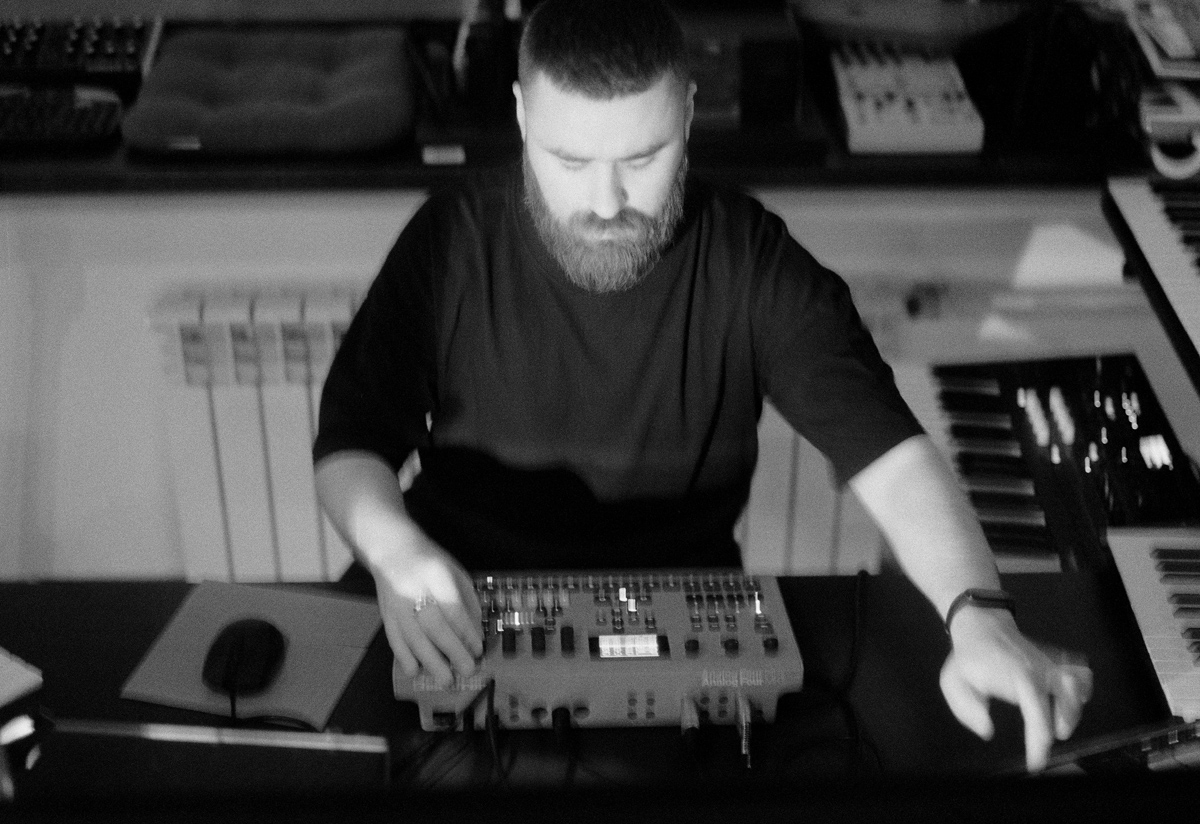
Dmytro Avksentiev | Photo by Anton Orekhov, specially for DTF Magazine
— Don’t you have a fear that if you develop one project, you might lose another? For example, you might lose Voin Oruwu if you promote Koloah.
— I’ll tell you more: I already lost Voin Oruwu. It was created as an alternative to techno music. It was an alternative to everything that Voin Oruwu has now. I can no longer sit down and make the same kind of music as the first album. I want to, but I can’t; I’ve lost what I had at the start. It’s very frustrating.
I still can’t figure out if this is normal or not. But, on the other hand, I see how I grew in other moments and learned a lot of new things.
— Do you think audiences even understand the difference between Koloah and Voin Oruwu?
— I was sure of it, because it was obvious. But, as it turned out, this is not always the case.
— Once again and briefly: What is the difference between the two projects?
— Voin Oruwu is originally a project about exploring dark mystical atmospheres, it has a darker undertone. It could be techno, it could be ambient, but it will always be something more otherworldly.
Koloah, in its turn, appeared on the wave of post-dubstep, it was the time of base music and new-club directions. And I don’t limit myself with anything in this project. It can be electro or jungle or trip-hop or something totally experimental. Other moods, futuristic sound and mixture of genres even within one track prevail here.
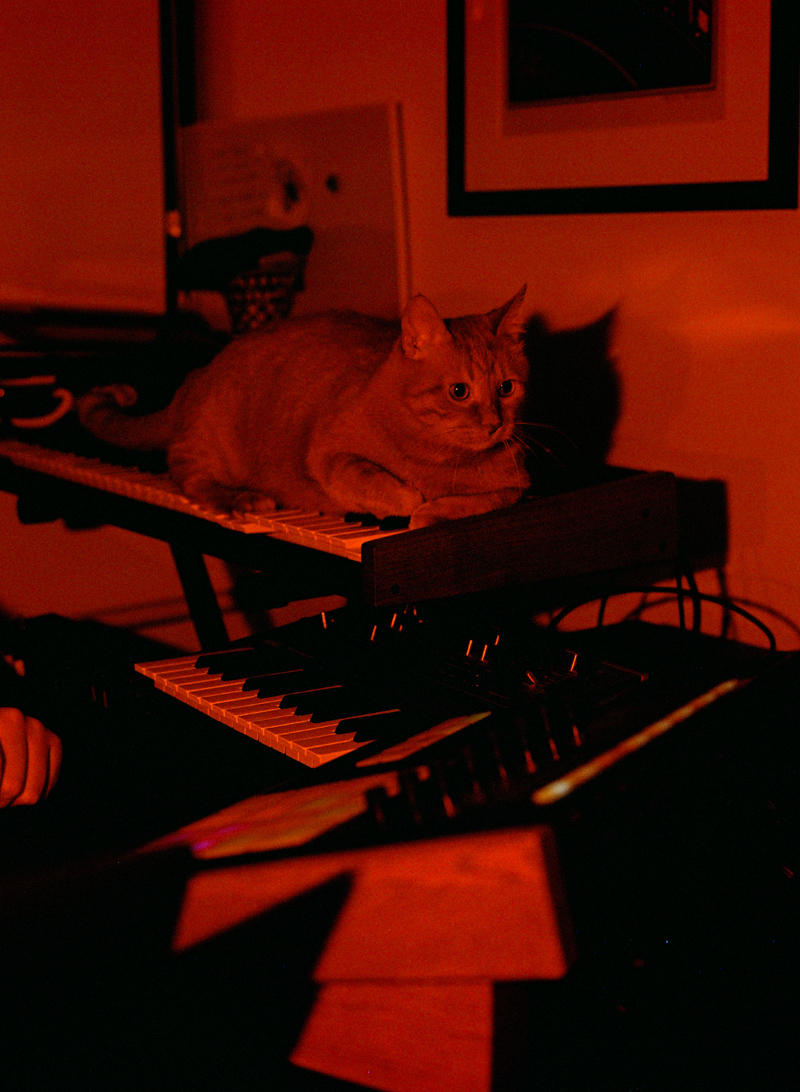
The cat Misha | Photo by Anton Orekhov, specially for DTF Magazine
«I AM CONSTANTLY DRAWN TO HOME»
— Do you consider yourself a successful artist?
— To a certain extent, yes, I do, especially in Ukrainian reality. I have a performance schedule, I have a place of power where I can write music.
However, there are a number of uncomfortable factors, one of which is the payment of royalties. This is something that is practically absent in Ukraine. Not the most stable political situation also makes a lot of worries, as well as insufficient support of the cultural sector compared to Europe. And also different forces interfere with the work of clubs from time to time.
Am I successful? I think I am successful on a local level. But I am not yet successful on a global level. And I would like to think on such a scale.
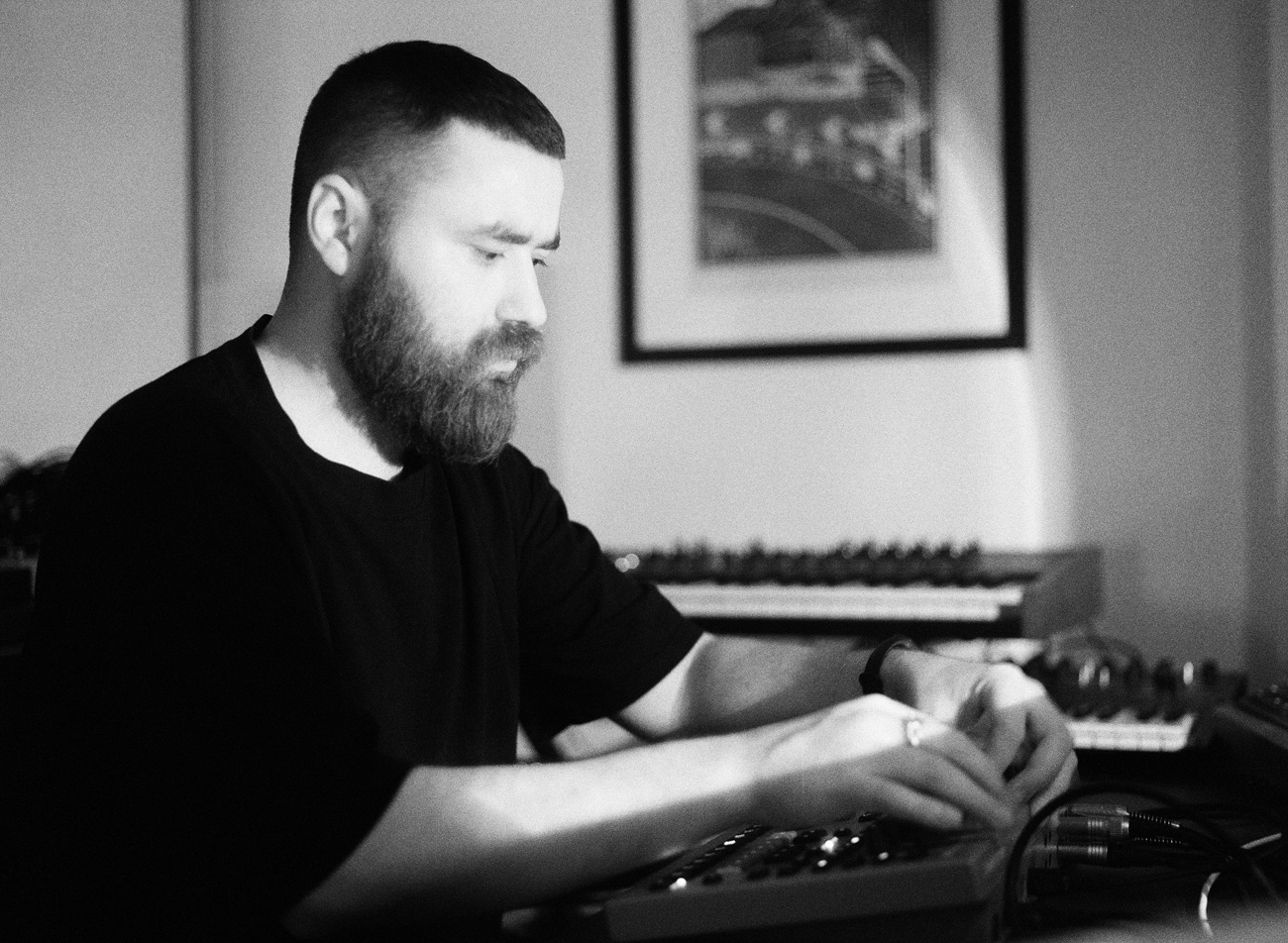
Dmytro Avksentiev | Photo by Anton Orekhov, specially for DTF Magazine
— Then it begs the question: why are you still in Kyiv instead of going to, excuse me, Berlin?
— I am constantly drawn to home. Before, I didn’t understand what my home was, whether it was my apartment, my studio, my surroundings or my city. I’m not sure that the studio would be my home even if I moved it to another city.
I’m cool in Kyiv. I want to be a part of this city. The last ten years have been a period of formation of our new culture, no matter how pathetic it may sound. It’s a period of formation of film, music, art and media art.
I like influencing processes, being an active participant in them. And yes, attention to yourself is intoxicating: you feel needed, constantly involved in interesting projects.
I would probably have more time for my music if I moved to Berlin, for example. The royalties would also probably go up, so I could take on less other work and devote more time to myself. But won’t I get bored? Wouldn’t my music become a chore?
— Isn’t it fear of competition?
— Not at all, I have confidence in myself. I have a lot of experience and a big case of projects. Plus I have my own sound, and that will always be my hallmark. In addition, my music is different, with different contexts, so my music will be relevant regardless of the scene.
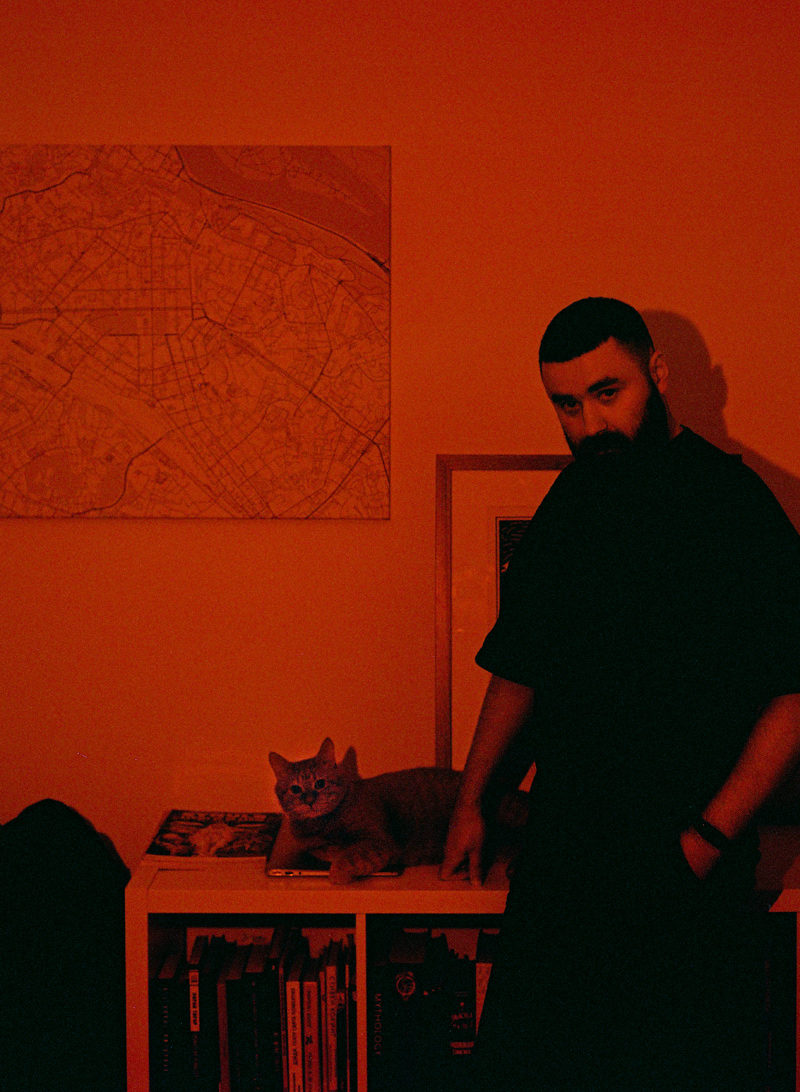
Dmytro Avksentiev and his cat Misha | Photo by Anton Orekhov, specially for DTF Magazine
«YOU CAN’T TALK ABOUT A FULL-FLEDGED SCENE WHEN THERE ARE THREE OF THE FOUR WHEELS IN THE CAR»
— Perhaps there are only a handful of Ukrainian artists touring the world. Vanya Samokrutnyk founded the Odessa label «System» and he noticed that many foreign artists want to perform in Kyiv, but few foreign promoters want to bring Kyiv djs and producers to their parties. And in principle, our artists are practically unknown on the world stage. What’s the reason for it, in your opinion?
— Everybody likes to come here and hang out: it’s cool here, there’s cool people here, there’s crazy parties not spoiled by wild commercialism. Of course, a lot of people want to see it, to come here, because the buzz for an artist is to play a set in Kyiv and get the kind of feedback that our audience gives.
Bringing our people to our place is another matter. Every promoter thinks about how to make money. He’d rather bring someone famous for the tenth time than bring a dude from Ukraine who nobody knows there.
Although the situation changes every year. We can mention the residents of Closer, who play abroad quite often. And we also have a large group of experimental artists, who also need to travel outside of Ukraine.
— Why have some Ukrainian artists (but a few) managed to break out and actively play around the world and others have not?
— I think one of the key reasons is having an agent. This story is especially successful if the artist manages to get into foreign agencies.
A lot of foreign audiences are coming to parties in Kyiv now, including promoters who are listening to our guys and calling them in and it’s also starting to pay off.
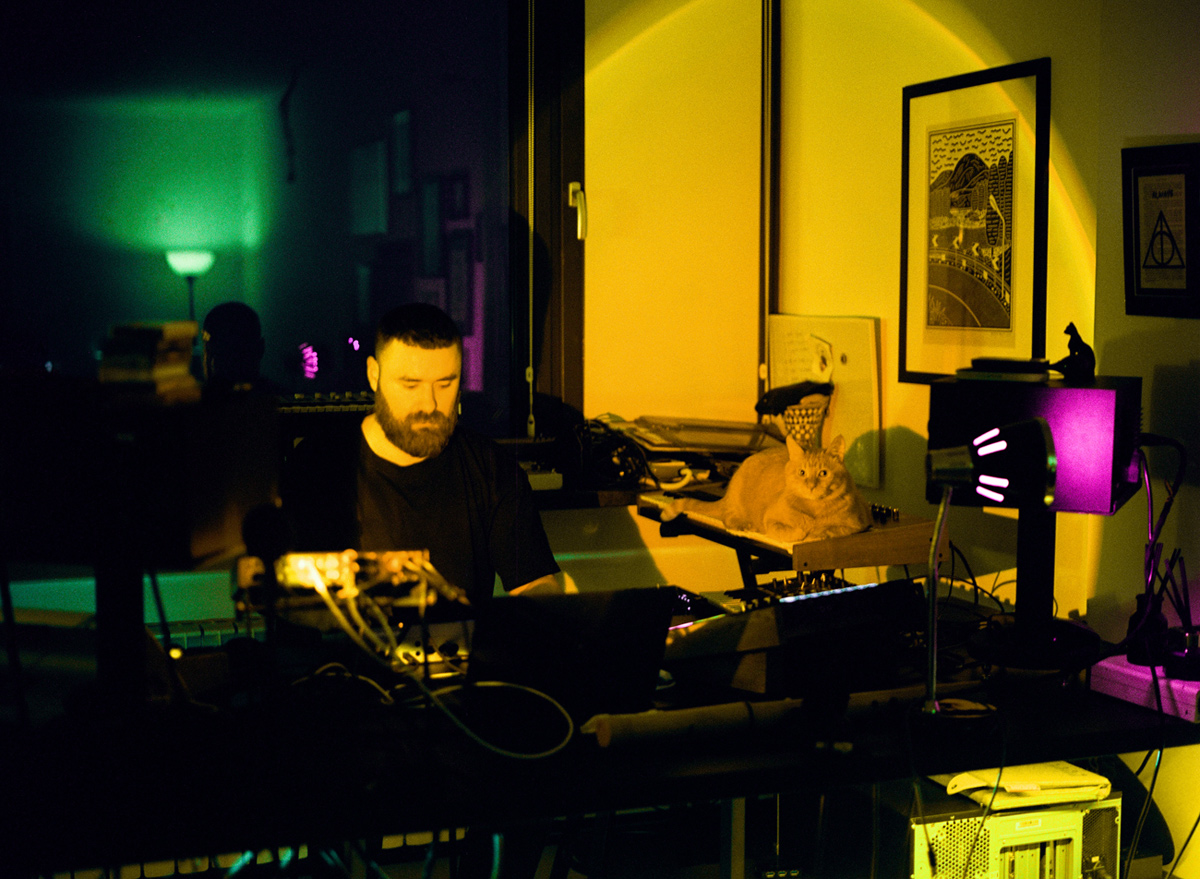
Dmytro Avksentiev and his cat Misha | Photo by Anton Orekhov, specially for DTF Magazine
— What is the situation with booking agencies in Ukraine? Is there an established system in the market?
— It’s there on some basic levels. It is the cool work of an agent that helps an unknown person become an artist with a name. An artist is an artist, and an artist needs a manager. The agent’s job is to promote, to negotiate the publication of the mix on a cool platform, for example, to get a performance at a festival, and so on.
— For me, we sometimes romanticize our scene too much, we constantly talk about some kind of flourishing. And it’s strange, considering that in fact there are no specialized media in the country, no journalists…
— We have nothing but artists, a community, and a few cool clubs.
— Do you feel like that’s holding you back in some way? I know that you don’t have a PR guy, you do everything yourself, you write to our editorial office about the release of the album yourself.
— It’s not a problem for me, because I like doing it myself. But it’s a problem for the stage.
You can’t talk about a full-fledged scene when there are three of the four wheels in the car, namely the music, the clubs and the community. We have no one to write about this music globally, there are no specialized media platforms, no booking agents and managers, no promotion, no PR in the electronic sphere.
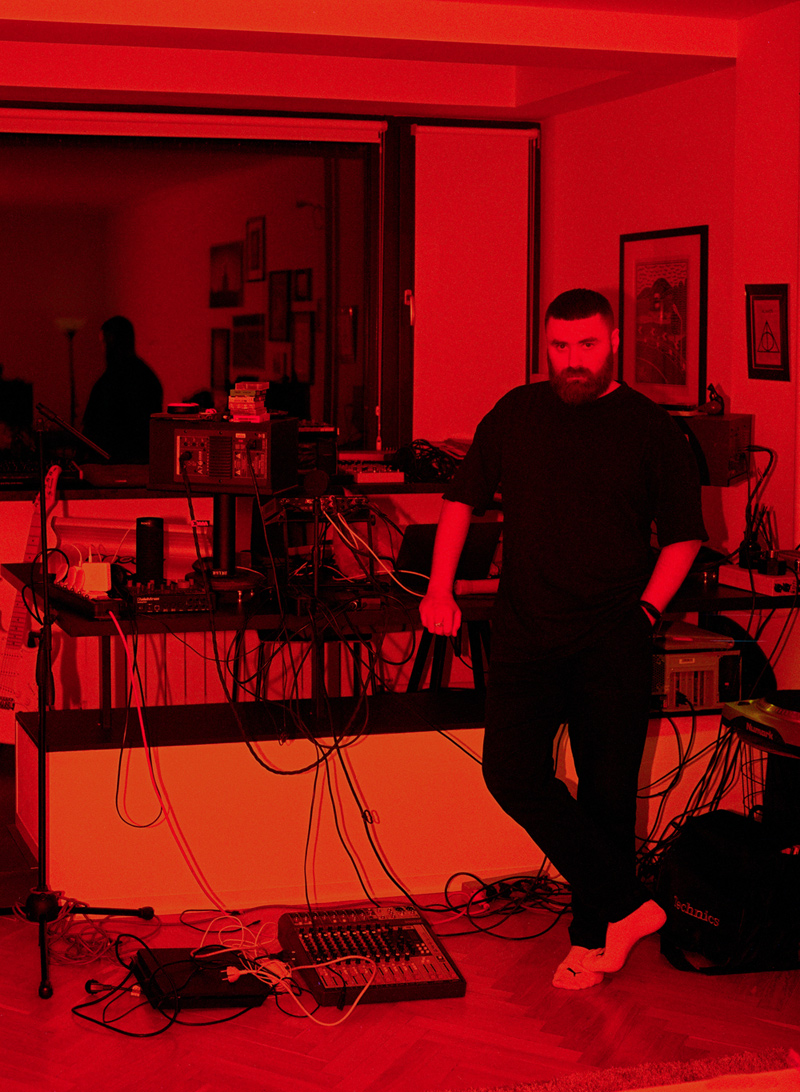
Dmytro Avksentiev | Photo by Anton Orekhov, specially for DTF Magazine
It is clear that all of this exists at least in some form in Kyiv, but it is all missing on a national scale.
But it won’t appear without romanticization. You have to be a romantic to create something cool, and then it will probably start giving you dividends. I think we’ll have it all sooner or later. I’d like to think so.
— Why haven’t you become a resident of any club or project in Kyiv so far?
— I don’t mind being a resident. Rather, I’m for it, because it’s good for both the project and the artist. I guess I can even compromise, but I also have a number of conditions that have to be taken into account. In particular, I’m not willing to sacrifice my right to choose where and when to play.
«I WANT THE MUSIC AND THE PICTURE TO MATCH EACH OTHER»
— Let’s move on to the album. You released Millennium Sun in November. How do you know if your album is ready for release? And what was it like with the last release?
— My albums are mostly compiled. I gather all my work, tracks into a playlist in a certain order, then I change places, throw some away, listen to all of them, bring something back, change places again, listen… It takes a lot of time. Sometimes it takes too long! Then I write the text. The text and the cover are the most important for me, because they are the first thing that gets the listener’s attention.
I very rarely sit down and write an album on purpose. There were only a few times, like when we did the release with Dennis Adu. I had a hard time at that time, I had something to say, and I wanted to capture my emotions. So we wrote three tracks in two weeks, which are still very strong.
I assembled Millennium Sun from new and old works that matched each other in sound and mood. There was even a track written in 2015. I made a new arrangement for it, keeping the original sound.
— When did you realize you had the Millennium Sun concept?
— It happened in 2019. But it was in a slightly different form and a little bit about something else. Then the lion’s share of the tracks just fucked off — and a new wave began. I had a concept of the future, which had already arrived, and the covid time made its adjustments, a different shade was added.
I immediately released the album through Hyperbloid Recods after it was put together. This is my 4th or 5th release on this label.
Then we started working on the cover art. The artwork was originally done by GSM Garden, who collaborated with Arca, for example. He’s a top artist, but he and I didn’t understand each other.
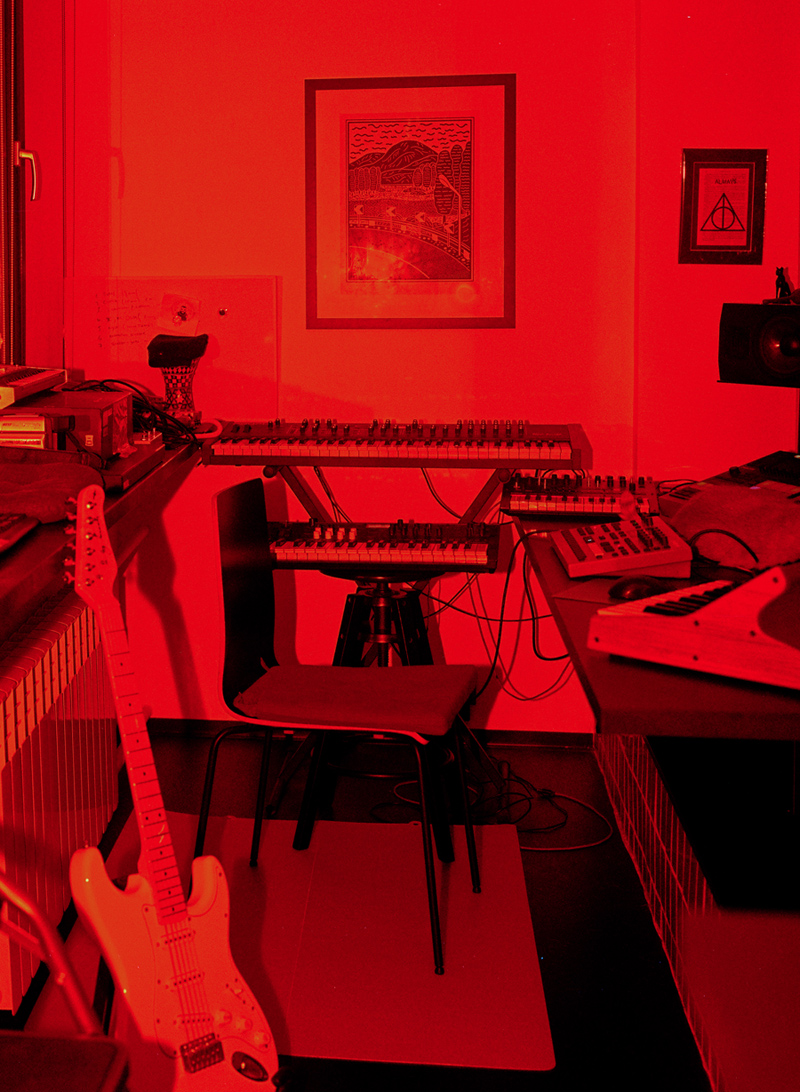
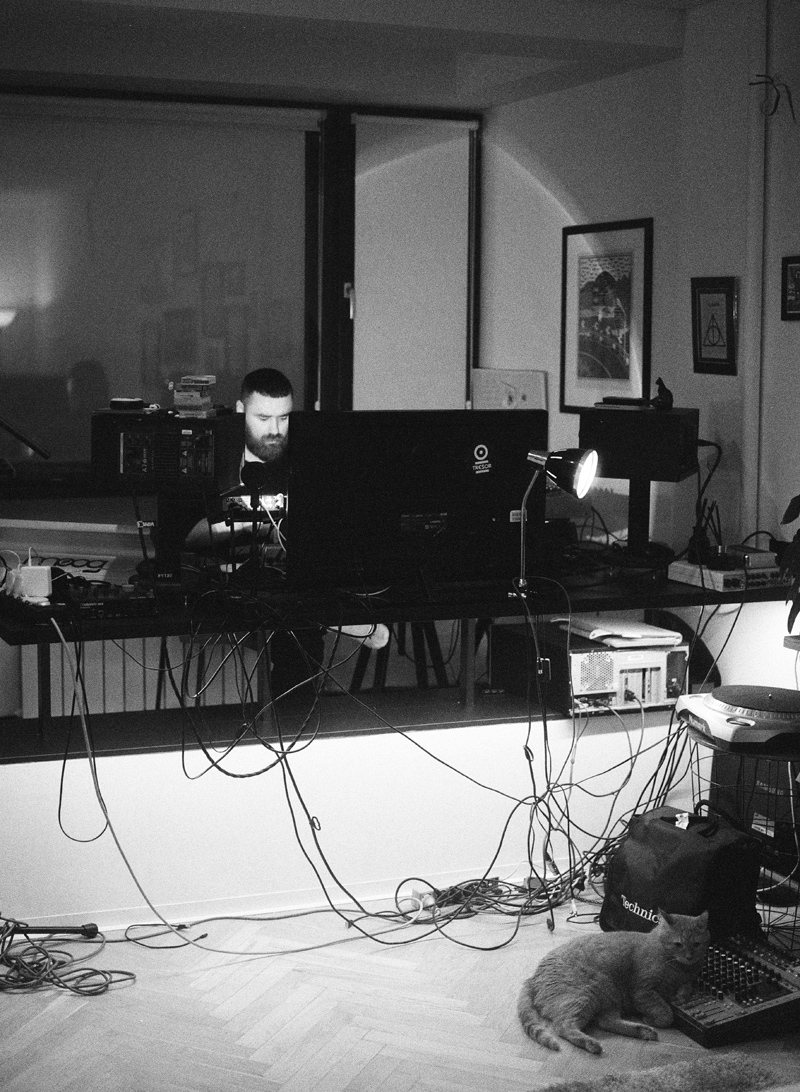
Avksentiev Studio | Photo by Anton Orekhov, specially for DTF Magazine
— Why?
— I always have a huge list of requirements for the cover. I put together a moodboard, I write out the concepts, down to the colors… I prepare such a document that you just take it and do it. But he did it his way, because it was a collaboration. It hit me, and a row started, but the label didn’t interfere for a while. But then they wrote to me: either we’re looking for a compromise with the artist, or the release will be postponed. We ended up rescheduling the release
I got my own designer, but that didn’t work out either. I ended up going to my friend Vova Morrow, and he did the cover for Millennium Sun, which came out with the album. I couldn’t make the release before Brave! Factory because of these delays, where the album was presented live.
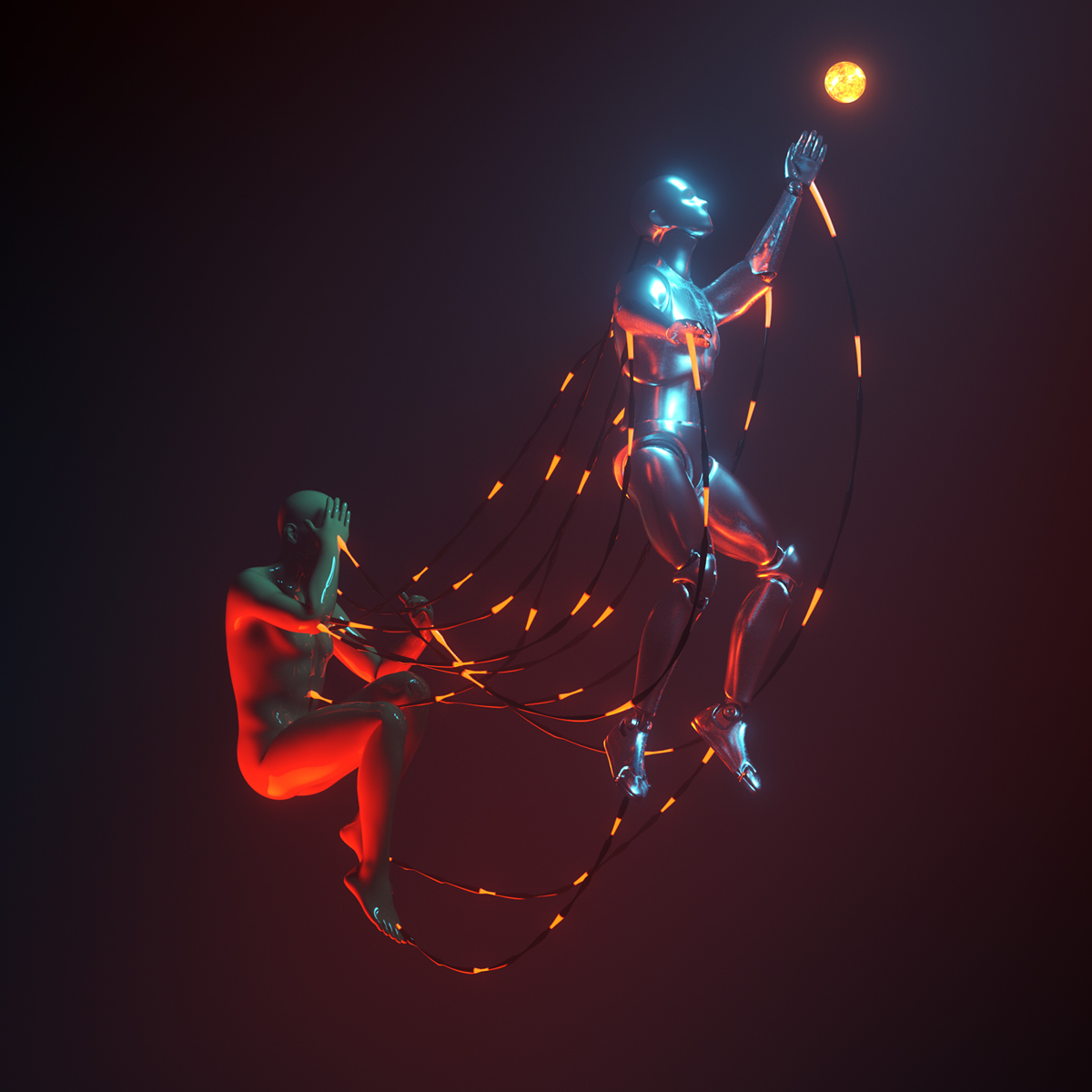
Photo caption: The cover of the album Millennium Sun, released in November 2021. Cover by Vova Morrow
But actually, I always have hell when it comes to the cover.I have a clear visual solution in my head in such cases, and I want the music and the picture to match each other.
— The album was followed by your collaboration with Riot Division. You showed an audiovisual show at the Planetarium in addition to the collection. Did you initially see the Millennium Sun also in this manifestation? Because Voin Oruwu’s previous album, Inertia, was also visual.
— Inertia was shown on Kyrylivska Street and I originally wrote it as an audio-visual album and music with visuals. I had a direction, but I didn’t have a clear vision of the visual part of the program in Millennium Sun. There were directions of what it could be. And the Blck Box team did everything in a very cool and professional way.
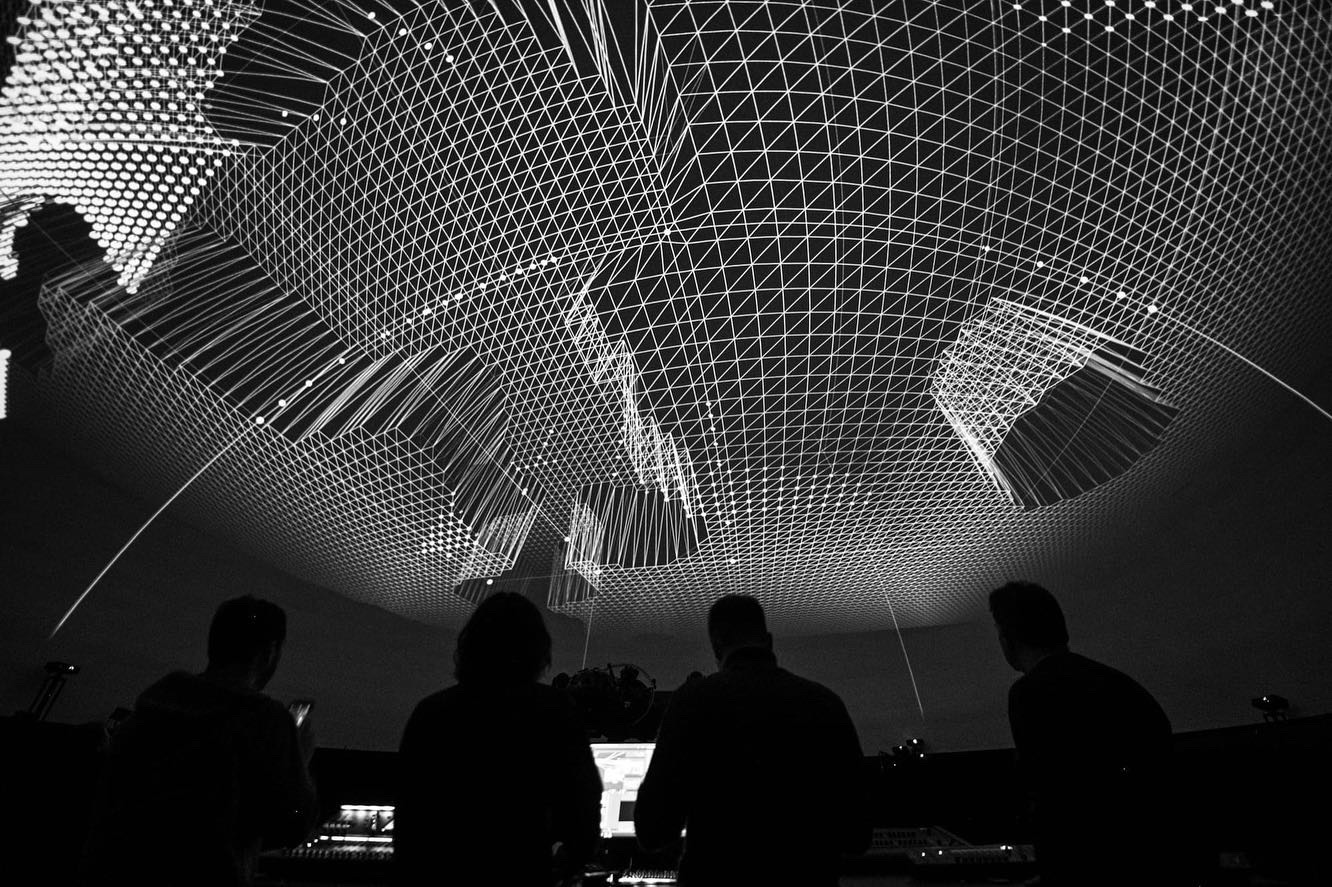
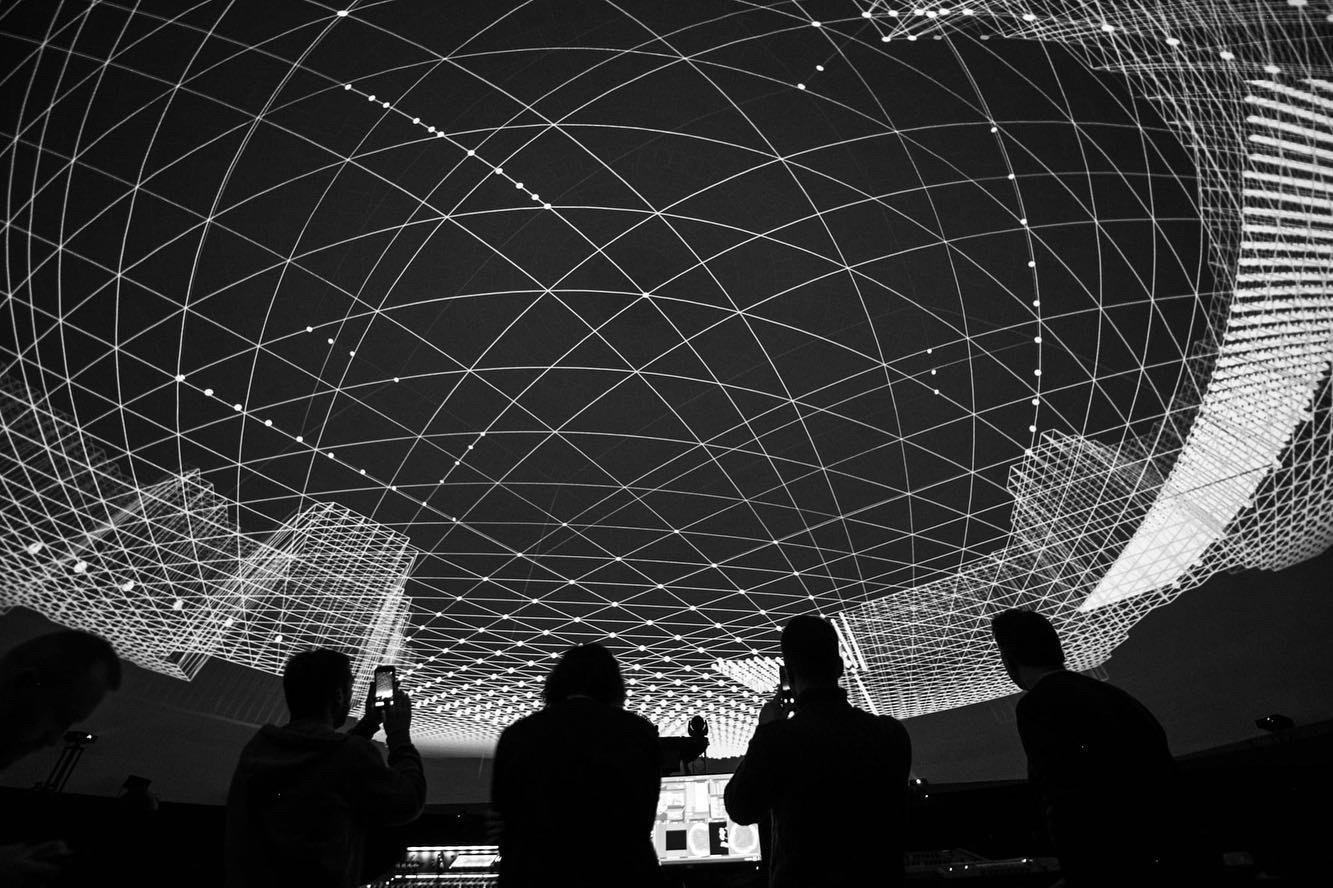
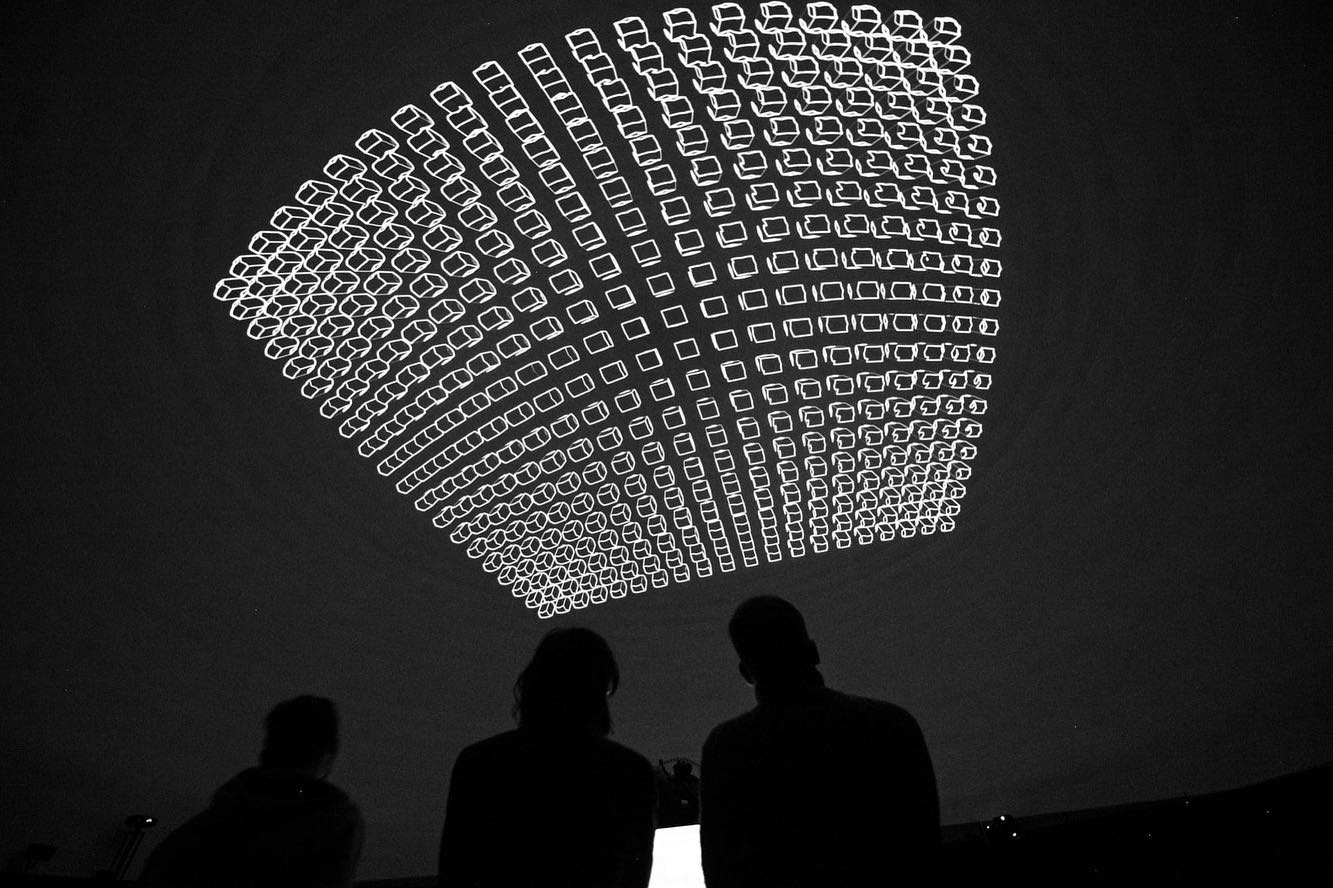
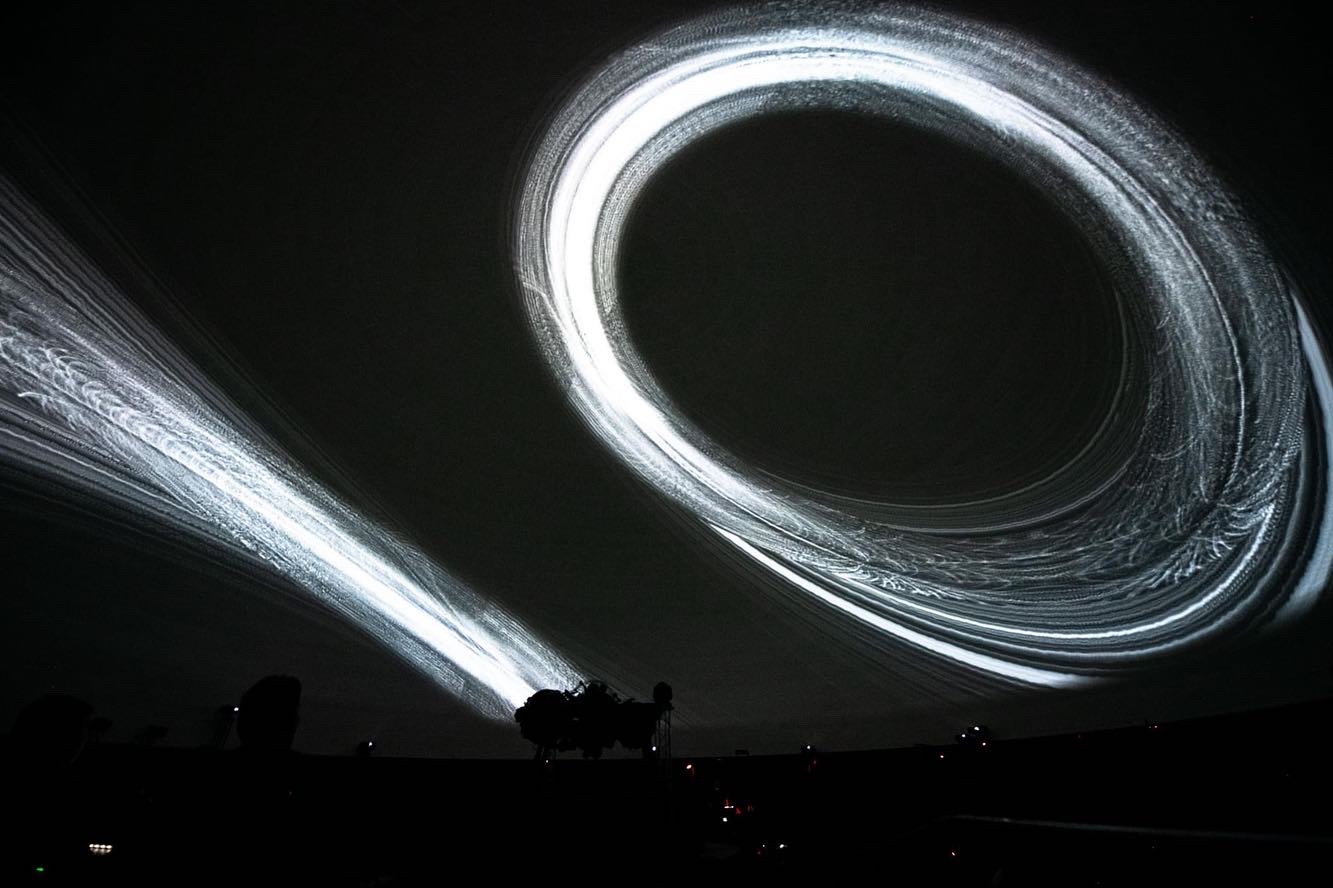
Photo caption: Audio-visual show WAVEFORM — a collaboration between Koloah and Riot Division. Photo — Blck Box
— The project at the Planetarium and on Kyrylivska Street is not about clubs or festivals. Would you say that you are interested in working with gallery and near-gallery spaces?
— Yes. I feel comfortable in this and have been doing similar projects since 2016. Inertia is the biggest and most ambitious project, which, unfortunately, was the worst of all for some reason. We showed it at the Biennale of Digital Art in Kyiv in autumn for the second time in a year.It seems to me that this project can continue to live and travel around the world in galleries and exhibition spaces even without me.
— Is the audience ready for something like this?
— I think the audience is ready. At the same time, there is the problem of a lack of venues. I don’t really understand where this could be shown. Can it be in the PinchukArtCentre? I don’t know, I don’t think so. There are some guys from the Biennale, who have a good space, but not many people know about it. But in general, we don’t have places for this kind of project.
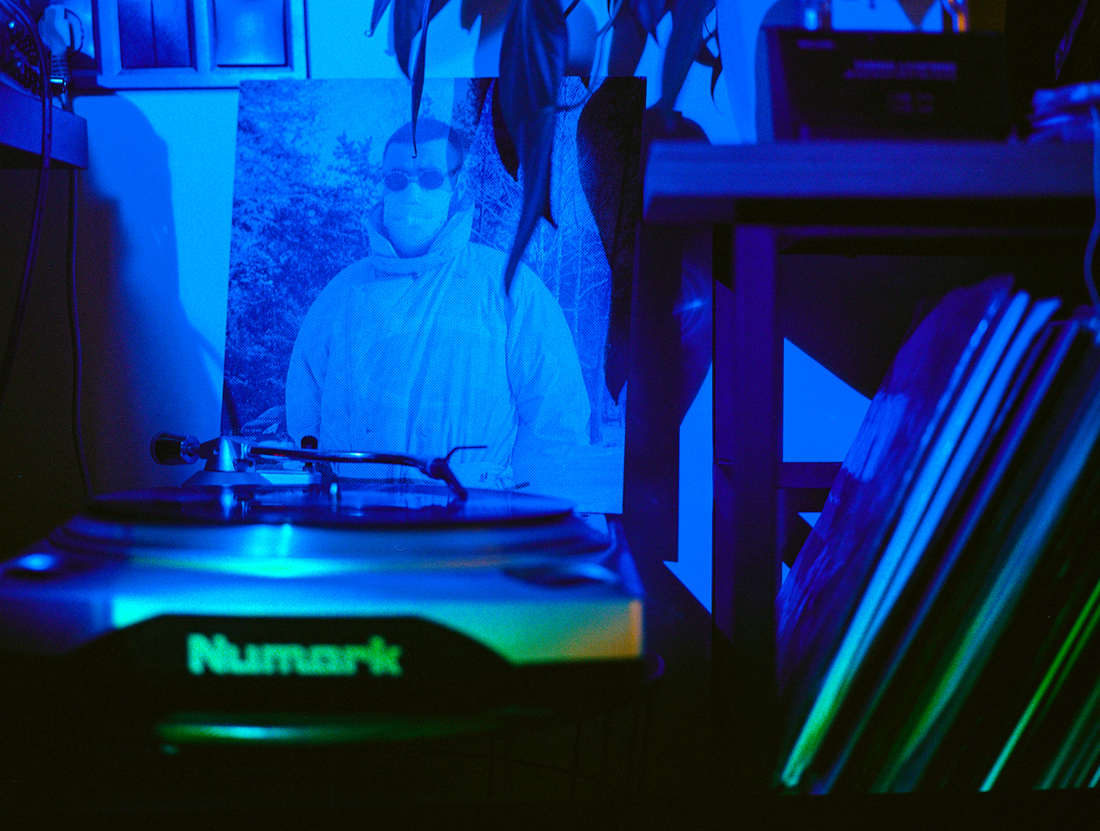
Avksentiev Studio | Photo by Anton Orekhov, specially for DTF Magazine
— Well, what is your goal as an artist? Is there something you’re going for?
— I want to do big performances where people will be as immersed as possible in what’s going on, and they’ll have an experience that will change something in them. I have quite emotional music, and big things can be done along with video and lighting.
